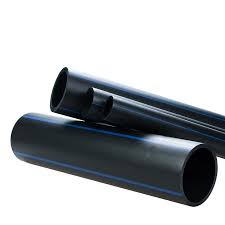Jul . 26, 2024 19:18 Back to list
Exploring Manufacturers of 12-Inch Diameter PVC Pipes for Various Construction Needs and Applications
Exploring the Industry of 12-Inch Diameter PVC Pipe Manufacturing
In recent years, the use of polyvinyl chloride (PVC) pipes has increasingly become a focal point in the construction and plumbing industries. Among the various sizes available, the 12-inch diameter PVC pipe stands out due to its versatility and scalability in a wide range of applications. This article will delve into the manufacturing processes, applications, advantages, and some leading factories producing these essential components.
Manufacturing Process of PVC Pipes
The manufacturing of PVC pipes involves a complex but efficient process designed to create strong, durable products. The initial step is the formulation of PVC resin, which is usually produced through the polymerization of vinyl chloride monomer. Once the resin is prepared, it is combined with various additives to enhance properties such as flexibility, impact resistance, and thermal stability.
The mixture is then subjected to extrusion, where it is heated and forced through a die to form the desired shape. For 12-inch diameter pipes, the extrusion process involves sophisticated machinery that can handle large volumes and maintain high precision. After extrusion, the pipes undergo cooling and curing processes to enhance their structural integrity. Finally, the pipes are cut to specified lengths, inspected for quality assurance, and packaged for distribution.
Applications of 12-Inch PVC Pipes
12-inch diameter PVC pipes find extensive applications across various sectors. They are particularly prominent in wastewater management systems, stormwater drainage, and irrigation projects. Their large diameter allows for efficient flow management, making them suitable for handling substantial volumes of water and wastewater. Additionally, these pipes are used in industrial applications, such as chemical transport, where resistance to corrosion and chemicals is imperative.
12 inch diameter pvc pipe factories

Moreover, the lightweight nature of PVC pipes simplifies handling and installation, reducing labor costs and installation time. Because of their smooth interior surface, these pipes also minimize friction, ensuring optimal flow rates. This efficiency is crucial for municipal water systems, where maintaining water pressure is essential for service delivery.
Advantages of Using PVC Pipes
There are several notable advantages to using 12-inch diameter PVC pipes over alternatives like metal or concrete. First and foremost, PVC is incredibly resistant to corrosion, reducing maintenance costs over the lifespan of the pipes. This characteristic makes PVC an ideal choice for various environmental conditions, from coastal areas exposed to saltwater to regions with harsh chemicals in their soil.
Additionally, PVC pipes are lightweight, allowing for easier transportation and installation. Their flexibility can accommodate shifts in the ground, making them less prone to cracking compared to more rigid materials. Finally, the cost-effectiveness of PVC pipes, coupled with their longevity and low maintenance needs, makes them a popular choice for budget-conscious projects.
Leading Factories in PVC Pipe Production
Several factories globally specialize in the production of 12-inch diameter PVC pipes, utilizing state-of-the-art technology to ensure high quality and efficiency. Companies such as Charlotte Pipe and Foundry, JM Eagle, and Apex Plastics have established themselves as leaders in the industry. These manufacturers prioritize innovative practices, investing in research and development to improve the durability and performance of their products.
In conclusion, the production of 12-inch diameter PVC pipes is a vital segment of the plumbing and construction industries. With ongoing advancements in manufacturing technology and an increasing emphasis on sustainable materials, the demand for PVC pipes is likely to continue its upward trajectory. Their versatility, durability, and cost-effectiveness make them an essential component in modern infrastructure development.
-
Durable DN100 PVC Well Casing Pipes for Reliable Water Supply
NewsAug.16,2025
-
HORON 25mm PPR Plumbing Pipes: Durable, Leak-Proof Water Systems
NewsAug.15,2025
-
Durable UPVC Column Pipes for Submersible Pumps | Efficient Water Flow
NewsAug.14,2025
-
DN100 PVC Well Casing Pipes - Durable & Corrosion-Resistant
NewsAug.13,2025
-
Flexible 32mm HDPE Pipes in Coil | Durable Water & Gas Lines
NewsAug.12,2025
-
DN50 HDPE Pipes in Coils: Flexible, Durable & Easy Install
NewsAug.11,2025

